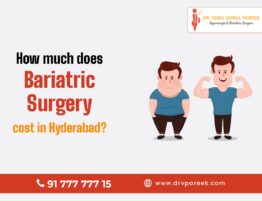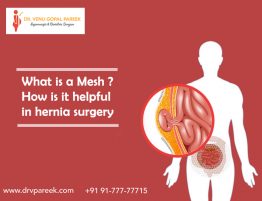
The appendix is a small worm-like structure attached to the cecum, the initial part of the large intestine, in the lower right corner of the stomach. In the first few years of life, the appendix acts as part of the immune system but has no known function. Sudden inflammation of the appendix is known as appendicitis. If you can identify the symptoms, you can prevent severe complications from appendicitis. The symptoms of appendicitis can vary depending on the infection of the lining of the abdomen (peritonitis). This can happen if your appendix bursts (perforates), intestinal contents, and infectious organisms enter the abdominal cavity. Peritonitis is an emergency medical treatment that requires immediate treatment of the appendix with surgery.
If you have appendicitis, your appendix usually is removed as soon as possible. This operation is known as an appendectomy. Surgery is often recommended when appendicitis is possible, but a precise diagnosis cannot be made. This is because removing attachments is considered safer than the risk of rupture. In humans, the appendix has no vital function, and its removal does not cause long-term problems.
Let us see this article provided by Dr Venu Gopal Pareek, who has 15 years of experience as a Gastro surgeon works at Sunshine Hospitals, Secunderabad. He gives information about Appendicitis surgeries, such as open and Laparoscopic surgery.
What is the appendix?

The appendix is the tubular, small, finger-shaped portion of the large intestine that is usually located near the junction of the small and large intestine (cecum) in the lower right abdomen. You may know the appendix gets inflamed and causes appendicitis.
What causes appendicitis?
Appendicitis is a sudden inflammation of the appendix. Even though the appendix appears to have no purpose, it can explode or cause infection if left untreated. This mainly occurs when the inside of the appendix is filled with mucus, bacteria, foreign bodies, parasites, or hard stools. This causes the appendix to swell, causing irritation and inflammation. The appendix can perforate, allowing stool, mucus, and other substances to leak into theabdomen , resulting in local abscesses or general abdominal infection (peritonitis).
What is an appendectomy?

This is an appendix removal surgery. Removing the appendix heals appendicitis. If left untreated, the appendix can tear or rupture, causing severe illness or even death.
Appendectomy is a common operation, and many people have their appendix removed. One way to remove the appendix is to make a larger incision in the navel’s lower and right side. This is called an open appendectomy.
Laparoscopic appendectomy removes the appendix with a small incision as described below.
What is Laparoscopy Appendectomy?
Laparoscopic appendectomy is a surgery used to treat appendicitis, an infection of the appendix. During laparoscopic surgery, the surgeon uses several small incisions with special surgical instruments inserted through the incisions to remove your appendix. Laparoscopic surgery produces fewer complications such as nosocomial infection and has a shorter recovery time.
It’s better to know open and laparoscopic surgery to know why laparoscopy is best. Let us see!
Appendicectomy:
The appendicectomy is removed under general anaesthesia with laparoscopy or open surgery.
Keyhole or laparoscopic surgery:

Key surgery (laparoscopy) is usually the preferred method of appendix removal because recovery is faster than open surgery.
- The surgery involves 3 or 4 small incisions (incisions) in the abdomen.
- Special tools are used, including:
- A tube that pumps carbon dioxide gas to inflate your stomach. This allows the surgeon to see your appendix more clearly and have more room to work.
- Laparoscope: Small tube with a light and camera that transmits images from inside of the stomach to a television monitor
- Small surgical instruments to remove the appendix
- With the help of laparoscopic surgical instruments, the tissue and vessels surrounding the appendix are cut.
- After your appendix is removed, dissolvable sutures can be used to close the incision. If regular stitches are used, they must be removed in the hospital 7 to 10 days later.
- The removed appendix is sent to the pathology laboratory for biopsy.
Open Surgery:

In certain circumstances, key operations are discouraged and used instead. They include:
- when the appendix has burst and forms a lump called the appendix mass
- if the surgeon has no experience with laparoscopic removal
- People who have previously had open multiple surgery
Procedure:
- In open surgery, a large incision is made in the abdomen’s lower right side to remove the appendix.
- If there is a widespread infection lining of the abdomen (peritonitis), sometimes surgery is required through an incision in the abdomen’s middle. This procedure is called a laparotomy.
- As in keyhole surgery, the incision is closed with dissolving or standard sutures that must be removed later.
- After either type of surgery, the removed appendix is sent to a laboratory to check for cancer signs.
This is a precautionary measure, and serious problems are rare.
Advantages of Laparoscopic Appendectomy
Results may vary depending on the type of surgery and your general health. However, the most common advantages of laparoscopic surgery are:
- The pain lessened after surgery
- Shorter time in hospital
- Return to normal activities sooner
- Soon normal bowel movement
- Small scar
Is Laparoscopic Appendectomy Best For You?

Ask your surgeon whether a laparoscopic appendicectomy is the best option for you. But compared to open surgery, laparoscopy surgery is best, but it depends on the patient’s condition.
Conclusion:
Laparoscopic appendicectomy is better than open appendicectomy in pain assessment, reduced analgesic use, and postoperative complications. Postoperative recovery is good in terms of length of stay in hospital and returns to standard work. The only drawback of a laparoscopic appendectomy is the length of surgery. In general, laparoscopic appendicectomy is better than open appendicectomy in selected patients with acute or recurrent appendicitis.
For more information and best surgery, contact Dr Venu Gopal Pareek at 091777 77715.
About Dr Venugopal Pareek – Laproscopic Surgeon
Dr Venugopal Pareek, a Consultant Laparoscopic and Bariatric Surgeon in Sunshine Hospitals has done more than 9000 surgeries in 15 years. He is one of the best bariatric surgeons in Hyderabad, an expert in performing various Bariatric surgical procedures like gastric bypass surgery, sleeve gastrectomy, adjustable gastric band, and biliopancreatic diversion with duodenal switch. He has attended several conferences and published articles on bariatric surgery in various national and international journals.







